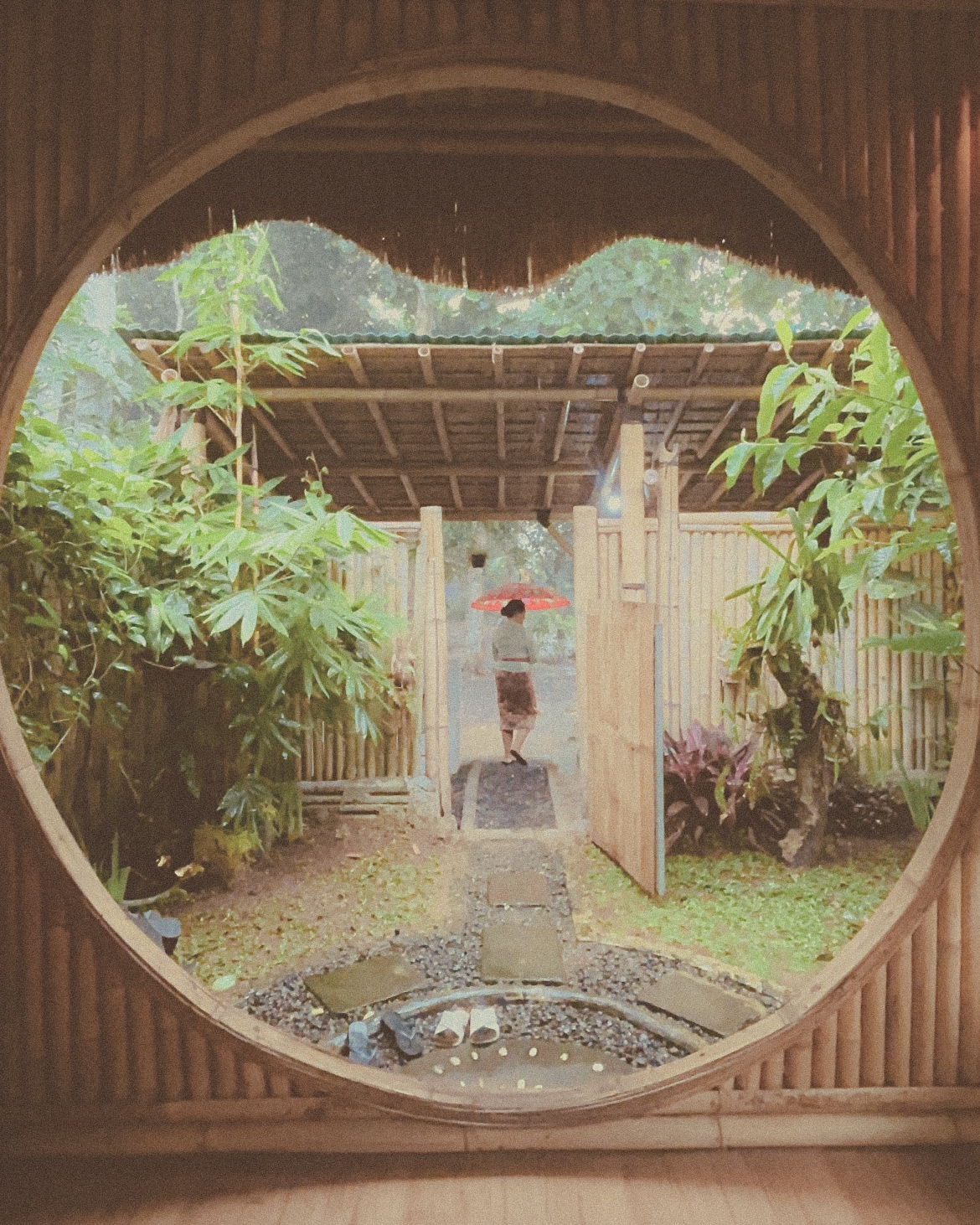

One of the most important steps to becoming a conscious traveler is to opt for sustainable accommodation on your trips.
Even as a seasoned conscious traveler I get frustrated by the confusing relationship between hotels and sustainability. Keeping all the buzzwords and terminologies associated with conscious travel straight is almost a full-time job.
This is why I’ve put together this complete guide breaking down different types of sustainable accommodations along with the many factors that you should consider when booking your stay.
Firstly let’s just make sure we’re all on the same page about what I mean when I say “conscious travel.”
Conscious travel simply means to travel with awareness of your impact, so that you can minimize the negative effects and maximize the positive impact.
It’s become the umbrella term for all sorts of movements that fall within the realm of traveling sustainably, such as eco-travel, slow travel, responsible travel, green travel, and whatever other terms getting thrown around.
The reason why Sustainable isn’t the all-encompassing word for all these movements is that nothing is 100% sustainable. We always make an impact.
When we opt for conscious travel rather than sustainable travel, we are implying that we are aware of our impact and choose what impacts we want to minimize.
With that being said, I still use the term “sustainable accommodation” because traveling as sustainably as possible is the goal of conscious travel.
We want to make conscious decisions about our travel choices to support systems that will benefit locals and the environment for years to come.

© Photo by Tatiana Syrikova from Pexels

Involve the children in the process as well

Child Friendly, toxic-free cleaner. Shop now
The most important things to look for in sustainable accommodation are:
They benefit the local economy
Have a low environmental impact
Help preserve the culture of the area.
Of course, it’s best if they can do all three, but at the moment it’s not always available or in your budget. Try to get at least one of the three— I’ll outline further how to identify these three things later in the post.

Breaking down the different types of accommodations isn’t an easy task, since this is a fairly new genre in the hospitality world, a lot of the terms get used interchangeably.
These are the categories in their truest forms, but don’t be surprised if you see a hotel, or a person using them wrong– just make sure to do your research every time before booking.
Green hotels focus primarily on reducing their environmental impact. They pay attention and try to limit their carbon emission, water usage, waste, and electricity usage. If they are building a new hotel, they will use environmentally friendly materials for building as well as furnishing.
Eco lodges or Hotels take it one step further than green hotels by focusing on using renewable energy sources alongside other initiatives like using energy-efficient lighting and water preservation. They typically are big on recycling and often reusing, they aim to make a positive impact on the environment rather than just reduce the negative impact.
Heritage hotels or hotels that are in buildings or on properties that are considered historic are also great options for sustainable accommodation.
These unique stays help fund the preservation of these historic and cultural places. It’s important to keep in mind though that they can be a trade-off for other important sustainability factors, like energy use or waste generation.
However, they tend to be a great option for those looking for a more conscious form of luxury accommodation.
Boutique or Independently owned hotels are also a great option for people who are living consciously but looking for a higher standard of grandeur from their accommodations.
Most of the time these hotels are owned and run by locals, which means that it’s directly supporting the community that you are staying in. A
always double-check though, since boutique hotels became more desirable than big resorts, corporate chains have also started making “boutique style” hotels.
Farm stays are pretty self-explanatory, it’s all in the name. It’s when you stay on a farm of some sort (be that raising animals or plants) The point of staying on the farm is to learn about cultivation or running the farm alongside whatever else you’re exploring in the area. Most of the time you will trade some of your time and energy working the farm for a free stay and food.
A guest house form of accommodation is when you are hosted in the actual home of a local resident. This can mean renting their home while they are away (like Airbnb) or staying in a spare room or home on their property, which is similar to the concept of the platform couch surfing. This is another great way to make sure the money you are spending on your lodging is staying in the local economy and is normally budget travel friendly.
Of course, a very eco-conscious way of staying is camping or even glamping. Being in a tent where you will have very little energy usage, is already much less impactful than staying in a hotel. Just make sure you leave your campsite as you found it, and then you’re pretty much being as sustainable as you can be.
Now that you have an idea of the general types of sustainable accommodation, it’s important to note that they can vary in different ways.
There are a few things that you should consider when you’re booking your stay.
Knowing these key factors will help you decipher if the hotels meet any of the three standards of conscious accommodation listed above. (Support the local community, reduce environmental impact, preserve culture)
Any truly sustainable accommodation should be able to say yes to a minimum of 3 of these questions:
Does the hotel use organic or local food?
Is the Building “Green”?
Are they using 100% renewable energy?
Do they have Energy-saving lights?
Solar thermal panels for hot water?
Are they using Ecological cleaning products?
Is more than 80% of waste recycled?
Are they Recovering & reusing the rainwater?
Do they have Incentives to support local communities?
Ways for guests to get involved with the local community/culture?
Are they involved in Cultural or Historical Preservation?
It’s unfortunate that since conscious tourism has become *trendy* Greenwashing has become almost a norm.
Trying to see the silver lining though, this means that the small niche of sustainable travel has become popular enough that big corporations in the hospitality industry actually care.
Hopefully, it won’t be long before the narrative switches and sustainability becomes the norm rather than greenwashing.
Until then, try to stay away from the following two examples that are huge red flags:
If a hotel claims to be a “green hotel” but doesn’t actually tell you anything about what they’re doing to make their hotel more eco-conscious then they are probably greenwashing. Hotels that are actually putting in the work want to and will tell you what they are doing.
While there are a few exceptions of hotel chains that have been putting in the effort to actually make changes, the majority of hotel chains are extremely unsustainable. They typically pay subpar wages to their workers, most of the money being made is leaving the local economy, plus they are notorious for energy wastage and single-use plastics.
There are a number of places where you can find sustainable accommodations that you can trust.
First and foremost any conscious travelers blog is a great place to start, you’ll get first-hand recommendations and input from the people who have done the research and stayed there, rather than the hotel’s marketing department.
Secondly, you can book through a number of different sustainable travel-focused accommodation platforms. New ones seem to be popping up daily but here are some of the tried and true platforms I trust:
Bookdifferent: For Eco-certified hotels
Homestay: Find homestays anywhere in the world.
Earth Changers: Travel opportunities that focus on benefiting the local community as much as possible.
Bio Hotels: Eco-hotels European eco-hotels that primarily focus on organic food offerings
Farmstay Planet: European Farmstays
Responsible Travel: Responsible tour booking site that also offers an accommodation-only feature.
Ecobnb: A platform that ranks B&Bs and guesthouses on their sustainability criteria.










© 2023 Maia Conscious Living Privacy Policy | Gabs Nardo LLC
7 Responses
Thanks so much for the tips both in the blog and on your YouTube channel. As a new Interior Design student, I find them to be incredibly helpful, interesting, and inspirational. Keep up the great work!
Great tips! I’ve just discovered your Youtube channel, and I love it!
Thanks for sharing your content and the day and life of a designer.
I love reading your blogs and watching your video. I am really impressed by the way you are doing business and I am just inspired by it!